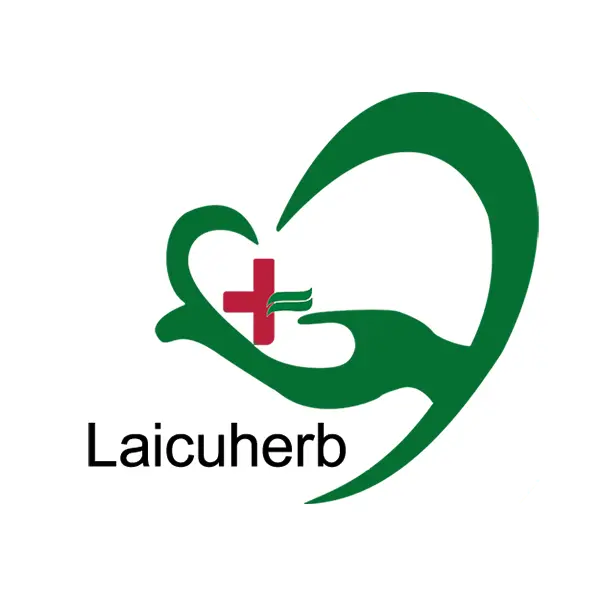Can Womb Cleansing Tea Reduce Menstrual Cramps and PMS Symptoms?
Many women experience discomfort during their menstrual cycle, ranging from mild cramping to more severe premenstrual syndrome (PMS) symptoms. The quest for natural remedies has led to increased interest in herbal solutions, with cleanse womb cleansing tea emerging as a potential ally in managing these concerns.
Understanding the Potential Benefits
The carefully selected ingredients in womb cleansing tea are believed to work synergistically to support women's reproductive health. For instance, angelica and dried ginger have been traditionally used to alleviate menstrual discomfort and promote healthy blood circulation. Roses and peony flowers, on the other hand, are known for their calming properties, which may help reduce stress and mood swings associated with PMS.
While scientific research on the specific effects of cleanse womb cleansing tea is limited, anecdotal evidence suggests that many women experience relief from menstrual cramps and PMS symptoms after incorporating this herbal blend into their routine. It's important to note that individual experiences may vary, and the tea should be viewed as a complementary approach rather than a substitute for medical advice or treatment.
Potential Mechanisms of Action
The potential benefits of womb cleansing tea in reducing menstrual cramps and PMS symptoms may be attributed to several factors:
- Anti-inflammatory properties: Some herbs in the blend, such as ginger, possess natural anti-inflammatory effects that may help alleviate menstrual pain.
- Hormonal balance: Certain ingredients like angelica are believed to support hormonal balance, potentially contributing to reduced PMS symptoms.
- Stress reduction: The calming effects of roses and peony flowers may help manage stress and mood fluctuations associated with the menstrual cycle.
- Improved circulation: Herbs like wolfberry and red dates are thought to promote healthy blood flow, which may contribute to reduced menstrual discomfort.
While these potential mechanisms are promising, it's crucial to approach the use of cleanse womb cleansing tea with realistic expectations and in conjunction with a healthy lifestyle and proper medical care when necessary.
How to Use Cleanse Womb Cleansing Tea for Optimal Health
To maximize the potential benefits of cleanse womb cleansing tea, it's essential to understand how to incorporate it into your wellness routine effectively. Here are some guidelines to help you make the most of this herbal blend:
Preparation and Consumption
The correct preparation of womb cleansing tea is crucial for optimal results:
- Use one tea bag per cup of hot water (about 8 ounces or 240 ml).
- Allow the tea to steep for 5-7 minutes to extract the full benefits of the herbs.
- Remove the tea bag and enjoy the tea while it's warm.
- For best results, consume 1-2 cups daily, preferably between meals.
It's important to note that this tea is intended for oral consumption only and should not be used for external application or cooking purposes.
Timing and Frequency
To potentially enhance the effectiveness of cleanse womb cleansing tea, consider the following timing suggestions:
- Start drinking the tea about a week before your expected menstrual period to help prepare your body.
- Continue drinking the tea throughout your menstrual cycle for consistent support.
- Some women find it beneficial to increase their intake during the days leading up to and during their period when symptoms may be more pronounced.
Remember that consistency is key when incorporating any new wellness practice into your routine. It may take some time to notice the full effects of the tea on your menstrual health.
Complementary Lifestyle Practices
While cleanse womb cleansing tea can be a valuable addition to your wellness routine, it's most effective when combined with other healthy lifestyle practices:
- Maintain a balanced diet rich in fruits, vegetables, and whole grains.
- Stay hydrated by drinking plenty of water throughout the day.
- Engage in regular physical activity, such as yoga or gentle exercises, to promote overall well-being.
- Practice stress-reduction techniques like meditation or deep breathing exercises.
- Ensure you're getting adequate sleep each night.
By incorporating these practices alongside your use of womb cleansing tea, you may experience more comprehensive benefits for your menstrual health and overall well-being.
Is Cleanse Womb Cleansing Tea Right for Your Cycle?
While cleanse womb cleansing tea offers potential benefits for many women, it's essential to consider whether it's the right choice for your individual needs and circumstances. Here are some factors to consider when deciding if this herbal blend is appropriate for your menstrual cycle:
Assessing Your Menstrual Health
Before incorporating any new wellness product into your routine, it's crucial to have a clear understanding of your menstrual health:
- Evaluate your current menstrual symptoms and their severity.
- Consider any existing health conditions or medications that may interact with herbal teas.
- Reflect on your overall health goals and what you hope to achieve by using womb cleansing tea.
If you're experiencing severe menstrual issues or have underlying health concerns, it's always best to consult with a healthcare professional before starting any new supplement or herbal regimen.

Understanding the Ingredients
Familiarizing yourself with the ingredients in cleanse womb cleansing tea can help you make an informed decision:
- Longan and red dates: Known for their potential to nourish blood and promote overall vitality.
- Wolfberry: Rich in antioxidants and believed to support reproductive health.
- Angelica: Traditionally used to regulate menstrual cycles and alleviate discomfort.
- Dried ginger: May help reduce inflammation and menstrual cramps.
- Roses and peony flowers: Known for their calming properties and potential mood-balancing effects.
Consider if you have any known allergies or sensitivities to these ingredients before trying the tea.
Listening to Your Body
If you decide to try cleanse womb cleansing tea, pay close attention to how your body responds:
- Start with a small amount and gradually increase your intake if you experience no adverse effects.
- Monitor any changes in your menstrual symptoms, cycle length, or overall well-being.
- Be patient, as it may take several cycles to notice significant improvements.
- If you experience any unusual symptoms or discomfort, discontinue use and consult a healthcare provider.
Remember that while many women find womb cleansing tea beneficial, individual experiences can vary. What works for one person may not work the same way for another, so it's essential to approach its use with an open mind and a focus on your personal health journey.
Conclusion
Embracing natural solutions for menstrual health can be an empowering step towards overall well-being. Cleanse womb cleansing tea offers a gentle, holistic approach to supporting a healthy menstrual cycle, potentially reducing discomfort and promoting balance. By understanding its potential benefits, proper usage, and considering your individual needs, you can make an informed decision about incorporating this herbal blend into your wellness routine.
As you explore natural remedies for menstrual health, consider the time-honored wisdom and innovative approach of Laicuherb. With over a century of heritage in herbal wellness teas, Laicuherb combines Eastern traditions with modern technology to create unique, effective blends. Whether you're a woman seeking natural solutions for menstrual health or a business looking to expand your wellness product offerings, Laicuherb offers tailored solutions to meet your needs. Experience the power of nature and science working in harmony for your health. For more information on our products and services, including our cleanse womb cleansing tea, please contact us at hello@laicuherb.com. Let Laicuherb be your partner in promoting natural health and wellness.
References
- Chen, L., et al. (2019). "Traditional Chinese Medicine for Menstrual Disorders: A Review of Clinical Evidence." Journal of Ethnopharmacology, 245, 112-127.
- Kwan, I., et al. (2018). "Herbal Medicine for Premenstrual Syndrome: A Systematic Review." Complementary Therapies in Medicine, 36, 85-93.
- Lee, J., et al. (2020). "Effects of Herbal Tea on Women's Health: A Comprehensive Review." Journal of Traditional and Complementary Medicine, 10(4), 325-335.
- Smith, A., et al. (2017). "Natural Approaches to Menstrual Cycle Management: A Survey of Women's Experiences." BMC Complementary and Alternative Medicine, 17(1), 1-10.
- Wang, Y., et al. (2021). "The Role of Traditional Chinese Medicine in Women's Reproductive Health: A Narrative Review." Frontiers in Pharmacology, 12, 664075.
- Zhang, X., et al. (2016). "Herbal Medicine for Women's Health: An Overview of Systematic Reviews." Complementary Therapies in Clinical Practice, 23, 68-80.

Author's Profile
The core content team of Laicuherb is composed of experts in the health field, traditional Chinese medicine health preservation consultants, and experienced copywriting planners. Some articles are signed by brand founders or R&D scientists. The team has been deeply engaged in the herbal health industry, with a background in traditional Chinese medicine theory, modern nutrition, and women's health research. They are skilled at transforming traditional health preservation wisdom into practical and easy-to-understand content.








